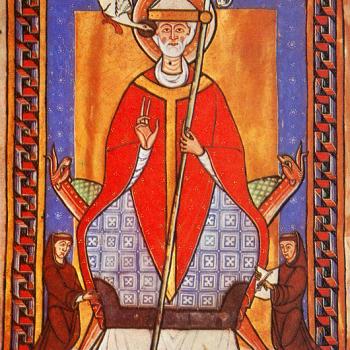1755 was one of the bleakest years in the history of Britain’s American colonies. That year, Britain launched a massive campaign to stop French aggression in the Ohio river valley, in the early stages of the Seven Years’ War (also known as the French and Indian War). Benjamin Franklin tried to warn British General Edward Braddock about the “ambuscades of Indians, who, by constant practice, are dexterous in laying and executing them.” But Braddock smiled “at my ignorance,” Franklin wrote, and said that “these savages may, indeed, be a formidable enemy to your raw American militia, but upon the king’s regular and disciplines troops, sir, it is impossible they should make any impression.” Braddock was fatally wrong; he marched his lumbering army into a devastating Indian and French ambush near present-day Pittsburgh, leaving Braddock dead and his army scattered.
Braddock’s American assistant George Washington twice had horses shot out from under him during the battle; later he was haunted by memories of the debacle and retreat: “the dead – the dying – the groans – lamentation – and cries along the road of the wounded for help. . .were enough to pierce a heart,” the future president wrote.
Braddock’s demise opened a flood of Indian attacks on Scots-Irish and German settlers on the Pennsylvania and Virginia frontiers, sending a stream of refugees toward Philadelphia and Williamsburg. Stories of Indian atrocities were rife; Virginia’s legislature likewise authorized new bounties for Britons who brought in Indian scalps.
It was in this context that Samuel Davies, a leading Great Awakening preacher and future Princeton president (he is buried near Jonathan Edwards in Princeton’s cemetery) delivered the hair-raising Religion and Patriotism the Constituents of a Good Soldier to a group of Virginia militiamen. Davies, who in most contexts was a learned, moderate evangelical pastor, here came off as virtually unhinged:
“Our territories are invaded by the power and perfidy of France; our frontiers ravaged by merciless savages, and our fellow-subjects there murdered with all the horrid arts of Indian and Popish torture.” The army of brave General Braddock, he lamented, was routed by a much smaller force of “dastardly, insidious barbarians.” Now the “blood-thirsty savages” had fallen on frontier settlers, using on them “the most unnatural and leisurely tortures.” He mused whether human nature could “bear the horror of the sight! See yonder! The hairy scalps, clotted with gore! The mangled limbs! The ript-up women! The heart and bowels, still palpitating with life, smoking on the ground!” These Indians, Davies thundered, were not “men; they are not beasts of prey; they are something worse; they must be infernal furies in human shape.” Behind these devils stood the demonic spirit of France’s “Popish slavery, tyranny and massacre.” Citing an admonition from the Prophet Jeremiah, Davies insisted that under the threat of such terrible foes, “cursed be he that keepeth back his sword from blood.”

To be sure, both Catholics and Indians had committed their share of atrocities, from the extermination of French Protestants after the revocation of the Edict of Nantes, to the well-attested practices of torture by Native Americans against both enemy Indians and Europeans. The British had perpetrated their own outrages, of course, and it would be difficult to know who deserved the most blame for all the scalpings and massacres of early American history.
Davies’ imprecations against those who held back their swords from blood seems understandable, then, but also troubling from a pastor of his stature, wisdom and influence. Perhaps we just suffer from a lack of nerve, but it is difficult to imagine circumstances in which pastors can properly adopt this prophetic mode, denouncing the enemy as devils in human form and demanding the shedding of blood. Elsewhere in the sermon, Davies did acknowledge that the colonies’ troubles were rooted in their own sins, but he did not much entertain the notion that anger over Braddock’s loss and the devastated frontier settlements could lead to sins of self-righteous retaliation.
These precedents seem all the more relevant as our world faces the barbarism of ISIS in Iraq and Syria, Boko Haram in Nigeria, and other global threats which so often come packaged in the ideology of jihadism. How do Christians balance an appropriate revulsion for the brutality we see in the news, without indulging self-righteous hatred? A good test – one my church’s pastor required of us on a recent Sunday – is that we must pray for our enemies, and for the enemies of the world Christian community. Praying for the enemy not only to be foiled, but also for the enemy to repent and turn from their wicked ways, requires a step away from the sheer craving for destruction. As delicious as it may seem to indulge that appetite, it is a dangerous mentality for Christians (or nations) to embrace.
Friends, if you haven’t already done so, I encourage you to sign up for the my newsletter. Each newsletter contains unique material available only to subscribers, incudling reflections on American history and the writer’s craft, and each will help you keep up with my blog posts, books, and other writings from around the web. [Your e-mail information will never be shared.] If you’re interested, you can sign up here.












